WEBINAR
Our shared future in the wake of a global pandemic:
Impact on economic, social and environmental divides
WEBINAR
Our shared future in the wake of a global pandemic:
Impact on economic, social and environmental divides
Date: May 31, 2020
The coronavirus pandemic affects us all. We fully expect it to have a much wider and deeper impact on our economies, our health care systems, our societies and social systems, our environment and our business operations. The virus is exposing and exacerbating economic and social divides already present around the world, both within and between countries. These divides are simultaneously magnifying the spread of the virus, and are felt especially by particular groups in society, including women, Indigenous peoples, marginalized groups and communities. In many contexts, spaces that promote citizen engagement in democratic processes are closing down – through new measures of containment that involve increased surveillance and an increasingly intrusive, authoritarian state. Death tolls are on the rise, unemployment is skyrocketing, and access to social support and healthcare is under threat. Although many governments are seeking evidence and research to help them navigate the future, the expertise of scientific and medical experts is often treated with skepticism.
COVID-19 is a universal challenge, but even though the virus has demonstrated our global inter-connectedness, we see some divides becoming starker and isolation growing. Borders are shutting down, and the multilateral system that has provided stability and prosperity is being challenged. The future is uncertain, which itself creates new levels of anxiety and mental health challenges. An unexpected positive impact of the pandemic on the environment is noticeable in many regions of the world. Quarantines and the associated disruption in economic activities are reducing environmental pollution, which could potentially contribute to saving lives around the globe.
This webinar addresses the questions of:
- What is COVID-19 revealing about the extent to which we are connected or divided?
- What does this new reality mean for globalization as we have come to know it?
- How is the global pandemic affecting our economic, social and environmental divides and who is most affected?
- What knowledge and evidence do we need to help us navigate towards a shared future in which we “build back better”?
- How will we find pathways forward that are informed and developed through engagement of those citizens and communities who are most directly affected?
Hosts

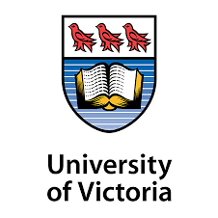
Founding Partners


Supported By:


Other Webinars
Moderator
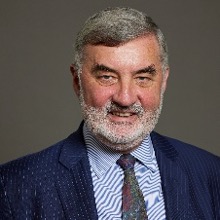
Lord John Alderdice
British House of Lords
In the last thirty years, John Alderdice has been involved in almost every aspect of the Irish Peace Process. As Leader of the Alliance Party of Northern Ireland from October 1987, he played a significant role in all the talks between the political parties and the British and Irish Governments on the resolution of the historic conflict in Ireland through to the negotiation of the 1998 Good Friday Agreement. He then retired as Alliance Leader and became the first Speaker of the new Northern Ireland Assembly, leading the establishment of the new legislature. More recently the First, Deputy First and Justice Ministers of Northern Ireland invited him to work with two colleagues to develop a new strategy to bring an end to the remaining paramilitary organizations in Northern Ireland. He also established the Centre for Democracy and Peace Building in Belfast to work on the cultural and attitudinal changes that will complete the Irish Peace Process.
Panelists
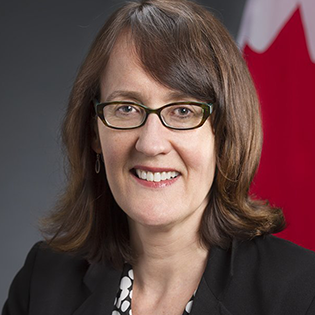
Patricia Fuller
Canada’s Ambassador for Climate Change
Patricia Fuller holds a Bachelor of Arts (Honours) in Economics and Political Studies from Queen’s University, and a Master of Science with distinction from the London School of Economics. Throughout her career, Ms. Fuller has specialized in trade and economic policy, as well as climate change and energy. At Foreign Affairs and International Trade Canada, she served as Deputy Director for Trade Remedies (1997-1999), Director of the Softwood Lumber Division (2003-2004), Chief Economist (2007-2010), and Director General of Planning and Reporting (2010-2012). While working at Natural Resources Canada from 2015 to 2017, Ms. Fuller headed the Office of Energy Efficiency and contributed to the development of the Pan-Canadian Framework on Clean Growth and Climate Change.
She also gained experience on environment and climate change files earlier in her career while working at the Privy Council Office and supporting the Cabinet Committee on Economic and Regional Development Policy from 2000 to 2003. Ms. Fuller served abroad as Ambassador of Canada to Uruguay from 2004 to 2007 and as Ambassador to Chile from 2012 to 2015. Previous international assignments also included Mexico and Guatemala. Most recently, she has been serving as Director General of Economic Development at Global Affairs Canada. Her responsibilities include oversight of Canada’s engagement with International financial institutions, as well as leadership for development assistance policy related to economic growth and governance.
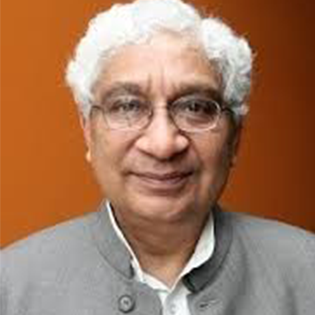
Prof Deepak Nayyar
Jawaharlal Nehru University, India
Deepak Nayyar is Emeritus Professor of Economics at Jawaharlal Nehru University, New Delhi. He holds a D. Phil in Economics from the University of Oxford. Deepak Nayyar is an Honorary Fellow of Balliol College, Oxford. He is a Distinguished Fellow of the Centre for the Study of Developing Societies, Delhi. And he is a Distinguished Professor at the Council for Social Development, New Delhi. He served as Chairman of the Board of Governors of the World Institute for Development Economics Research, UNU-WIDER, Helsinki from 2001 to 2008, as Vice President of the International Association of Universities, Paris, from 2004 to 2008, and as Vice Chairman of the Board of the South Centre, Geneva, from 2011 to 2014.
He was on the Board of Directors of the Social Science Research Council in the United States from 2001 to 2007 and was Chairman of the Advisory Council for the Department of International Development, Queen Elizabeth House, University of Oxford, from 2004 to 2007. He served as Chief Economic Adviser to the Government of India and Secretary in the Ministry of Finance from 1989 to 1991. He has been a member of the National Knowledge Commission in India. He has been a Member of the World Commission on the Social Dimension of Globalization. He was a Director on the Boards of State Trading Corporation of India, State Bank of India, Export-Import Bank of India, Maruti Udyog, Steel Authority of India Limited, ICRA, and Oil and Natural Gas Corporation.
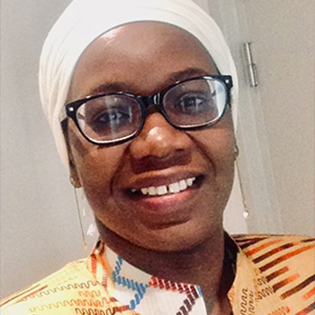
Dr. Aminata Niang
IPAR, Senegal
Aminata holds a Ph.D in Cutural Anthropology (University of Arizona) and a M.A. in Sociology (University Cheikh Anta Diop of Dakar). She has been engaged in collaborative research for over 15 years on qualitative research on development issues, gender, poverty reduction, impacts of corporate mining local development, governance of natural resources in West Africa.
After her MA, she worked at the Centre de Suivi Ecologique-Dakar as junior researcher, then as a consultant for various institutions prior to completing her doctoral studies in the USA where she worked as research assistant and teacher – assistant (2007-2012). Since 2013, she works as research associate at the Initiative Prospective Agricole et Rurale (IPAR), a Think Tank which contributes to the economic and social development of Senegal and the West Africa region through research, capacity building and policy dialogue.
At IPAR, she worked as lead researcher in various projects funded by big donors (IDRC, Gates Foundation, Hewlett Foundation…) such as : Understanding changing land issues for poor rural people in sub-Saharan Africa: the case of Senegal, Rural markets, Youth employment and migration in Senegal, Mali, Burkina, West African Sanitation and Policy Advocacy Activator (WASPAA), and Institutionalizing evidence use in policy making within the government bodies and Parliament.
